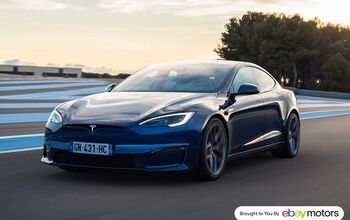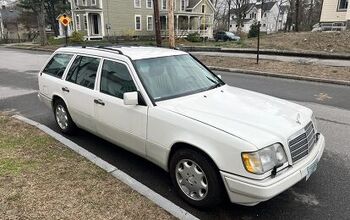General Motors Death Watch 189: Name and Form

In the ancient Buddhist text Visuddhi-Magga, "name" and "form" are described as powerless in their respective isolation. But when they propitiously combine and mutually support one another, they attain power and "spring up and go forth." GM's announcement that the 2010 Chevy Cruze would [eventually] replace the Cobalt marks a dubious milestone in its continuing struggle to establish a lasting presence in the all-important compact car market. The Cruze will be the recipient of the eightieth name that GM has used on one of its mid-sized or smaller sedans since 1968.
Why 1968? It's the year Toyota introduced the Corolla. We could have started with 1973 (Civic), 1976 (Accord) or 1982 (Camry). But you get my drift: consistency and the lack thereof.
A recent QOTD posed the question "Why are the Japanese so smart (successful)?" Smartness may have little to do with it. Try "tenacious" or "one-pointed." The last Japanese soldiers in the Philippine jungle didn't surrendered until 1974, and then only after their [former] commanding officers were flown-in with written proof that the war was over. The soldiers' rifles and ammo were still in perfect condition. I suspect strongly that my (possible) grandchildren will still be cross-shopping Corollas.
When GM's obituary is written, it will be long and complicated. But this line alone would be adequate: "they failed to execute a consistent program of small car development and refinement." Yes, there were random moments of transcendence: Corvair, Opel 1900, and… your nominations, please. Lots of these vehicles had one, sometimes even two uplifting features. The Vega, for example, was button-cute and handled really well.
But GM's utter lack of a consistent effort to cultivate any continuity, build name and, thereby, brand equity, is distinctly unenlightened. Even with its competitive Japanese captive imports (GEO), GM displayed ignorance. The current version of the Metro, Suzuki's Swift, is a highly regarded sub-compact. It would likely beat the pants off the Daewoo-sourced Chevy BEAT. Oh, right, we're not actually getting that cute hatch, despite almost one million votes cast in favor of the BEAT on Chevy's web site. Another GM exercise in mental masturbation.
Despite GM's claims to have learned from their mistakes, their (re)naming mania continues. The Cruze will supplant/replace the Cobalt. Is this a tacit admission that the Cobalt failed to live up to its makers' grand ambitions when it replaced the Cavalier? While not exactly a class-leader, the Cobalt's not quite the class dunce (you know who you are). It was a substantial improvement over the decrepit Cavalier in every way; it just needed more TLC. Given that the Cobalt and Astra share the competent Delta platform, the requisite interior parts and chassis calibrations are just a Saturn dealer away.
Instead, GM stumbles blindly down the same road of ignorance it has traveled so many times before. When the Cruze arrives in 2010, the Cobalt will continue as the low MSRP/fleet queen special. In GM's high-priest Bob Lutz's own words of prophesy, "the Cobalt is nowhere near the end of its life-cycle." Great; think immortal Buick Century and Chevy Malibu. Classic fleet-mobiles. Not only is GM living in delusion about building name equity, it has become the Shiva of car names.
Ironically, GM religiously guards the one exception, the longest-lived continuous name plate in the whole industry: Corvette. Need I say more? The Corvette is the perfect antithesis to everything that has ailed GM in its passenger car programs. The 'Vette offers its devotees– and they are legion– fifty-five years of focus and improvement, if not always in a perfectly straight line.
I'm not implying that name continuity guarantees success. But it tends to be emblematic of the pride and perseverance that a successful automaker commits to its cars. Think BMW 3-series. Mercedes S-Class. And it sure helps with top of mind name recognition: When a supplicant asks the auto-guru for a recommendation for a good compact car, he can always say "Civic" in an eye-blink without ever having to stretch the brain cells trying to remember what GM's current offerings are called.
For what it's worth, Toyota's only name-and-form stumble corresponded with relatively weak sales. The all-new Yaris (European Car of the Year 2000) was inexplicably called Echo for North America, as well as suffering from an ugly trunk and mug. It ended a long streak of popular sub-compact Tercels. Anyway, Toyota's eleven small and mid-size car names in forty years (Crown, Cressida, Matrix, Tercel, Echo, Yaris, Corona, Mark II, Carina, Camry and Corolla) seem downright profligate compared to Honda.
Civic and Accord. Name and form. The two best selling cars in the land have "sprung up and gone forth" for over thirty years. Automotive immortality attained. Note to GM: endless reincarnation is not a goal worthy of aspiration. Bad karma.

More by Paul Niedermeyer
Latest Car Reviews
Read moreLatest Product Reviews
Read moreRecent Comments
- Marcr My wife and I mostly work from home (or use public transit), the kid is grown, and we no longer do road trips of more than 150 miles or so. Our one car mostly gets used for local errands and the occasional airport pickup. The first non-Tesla, non-Mini, non-Fiat, non-Kia/Hyundai, non-GM (I do have my biases) small fun-to-drive hatchback EV with 200+ mile range, instrument display behind the wheel where it belongs and actual knobs for oft-used functions for under $35K will get our money. What we really want is a proper 21st century equivalent of the original Honda Civic. The Volvo EX30 is close and may end up being the compromise choice.
- Mebgardner I test drove a 2023 2.5 Rav4 last year. I passed on it because it was a very noisy interior, and handled poorly on uneven pavement (filled potholes), which Tucson has many. Very little acoustic padding mean you talk loudly above 55 mph. The forums were also talking about how the roof leaks from not properly sealed roof rack holes, and door windows leaking into the lower door interior. I did not stick around to find out if all that was true. No talk about engine troubles though, this is new info to me.
- Dave Holzman '08 Civic (stick) that I bought used 1/31/12 with 35k on the clock. Now at 159k.It runs as nicely as it did when I bought it. I love the feel of the car. The most expensive replacement was the AC compressor, I think, but something to do with the AC that went at 80k and cost $1300 to replace. It's had more stuff replaced than I expected, but not enough to make me want to ditch a car that I truly enjoy driving.
- ToolGuy Let's review: I am a poor unsuccessful loser. Any car company which introduced an EV which I could afford would earn my contempt. Of course I would buy it, but I wouldn't respect them. 😉
- ToolGuy Correct answer is the one that isn't a Honda.


































Comments
Join the conversation
I can't believe no one's pointed out this sort of naming nonsense was one of AM's first 'fixes' at Ford, following future forsaking of forever affixing F's for the first letter for fullsize Fords. Long live the Taurus. Bring back to Galaxy. Let the Crown Vic die a quick and painless death.
@ex-gm In all of these places Toyota Corolla is… er… Toyota Corolla. In Europe, the Corolla has been renamed the Auris.